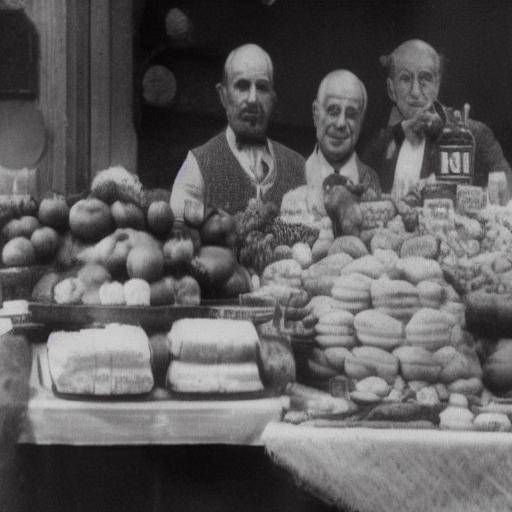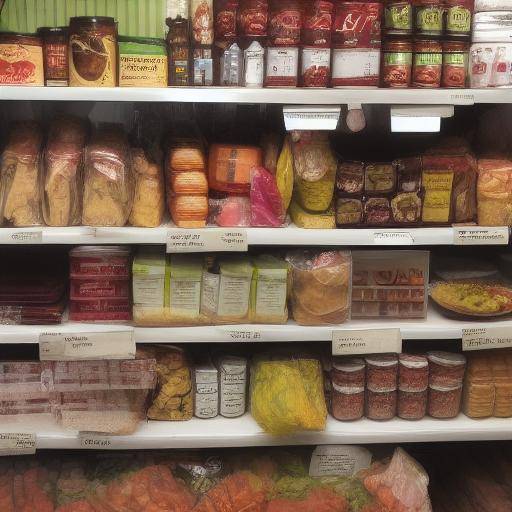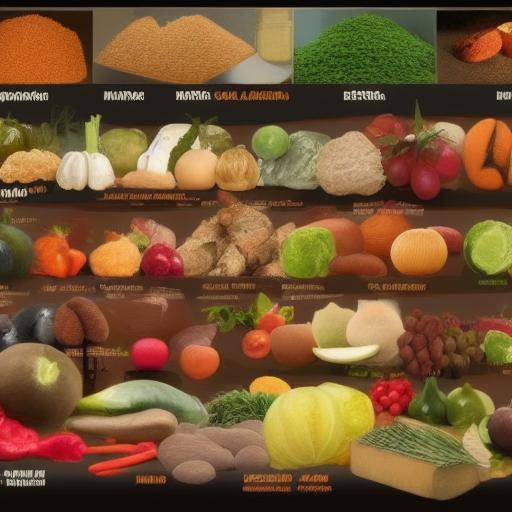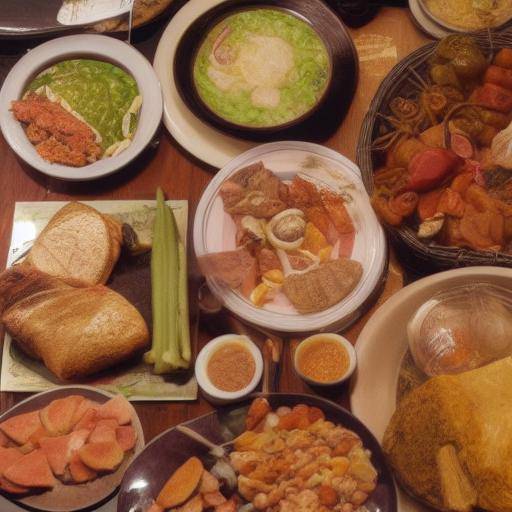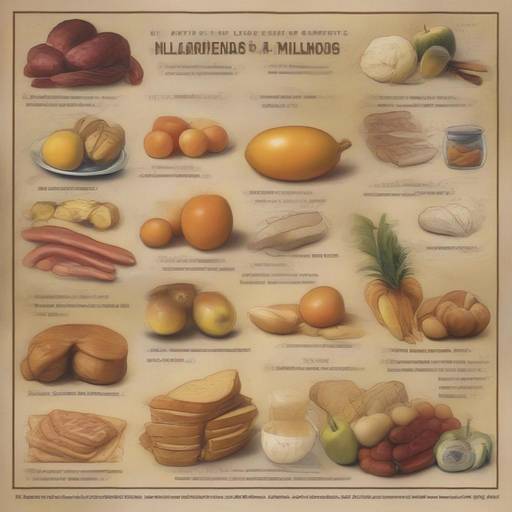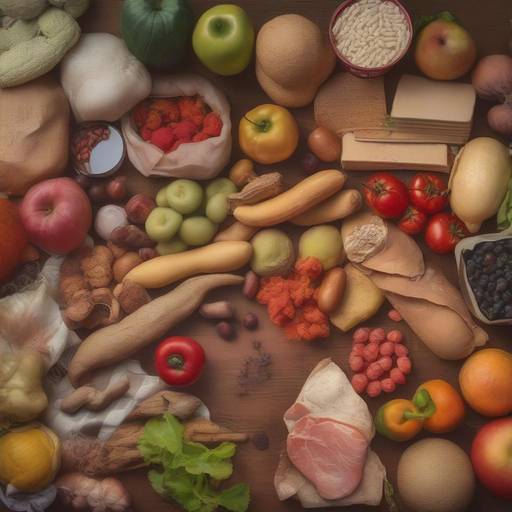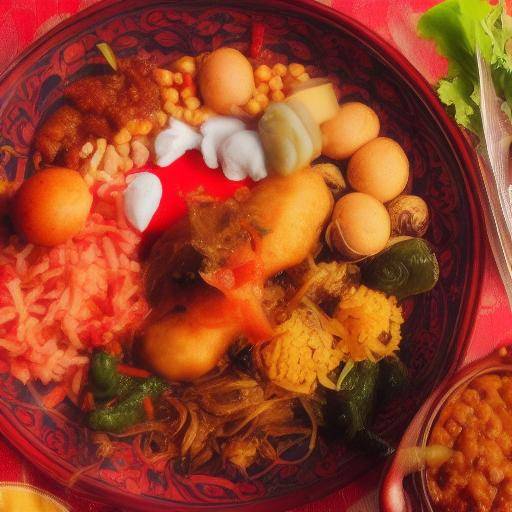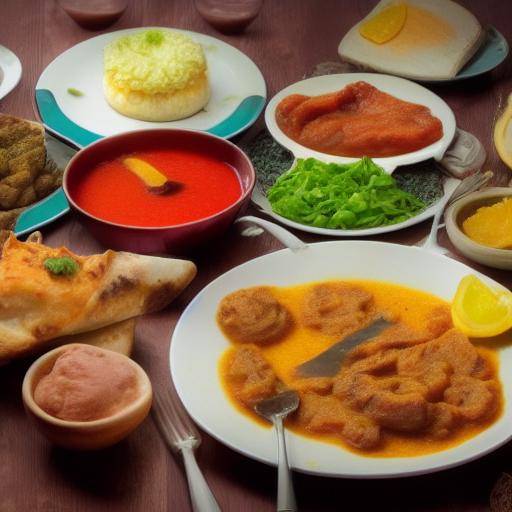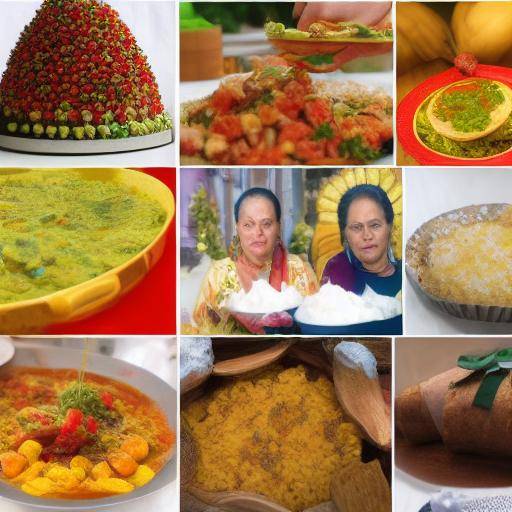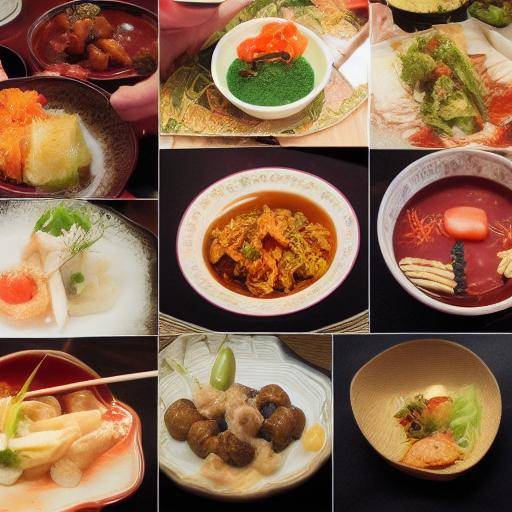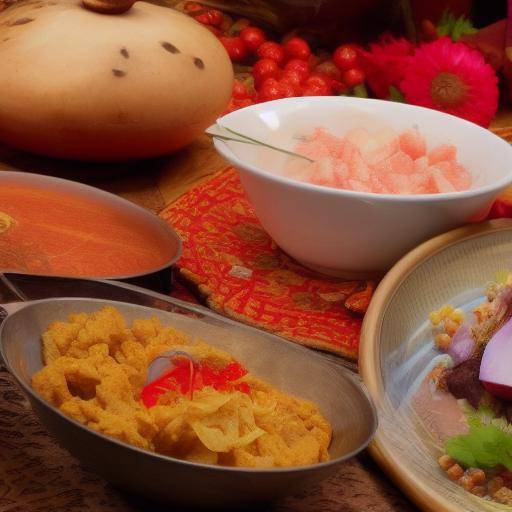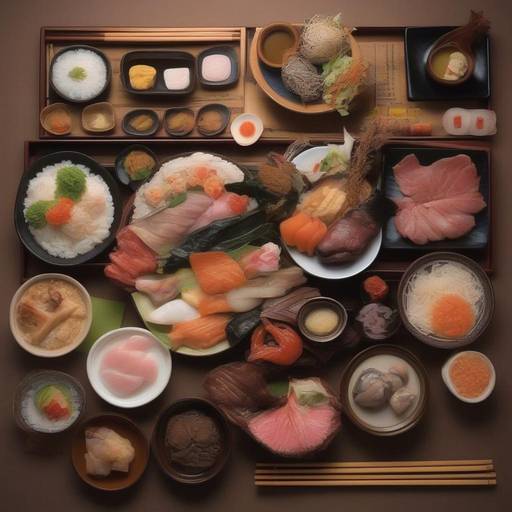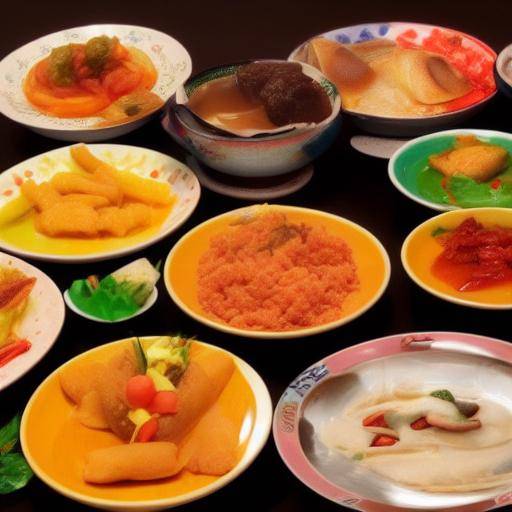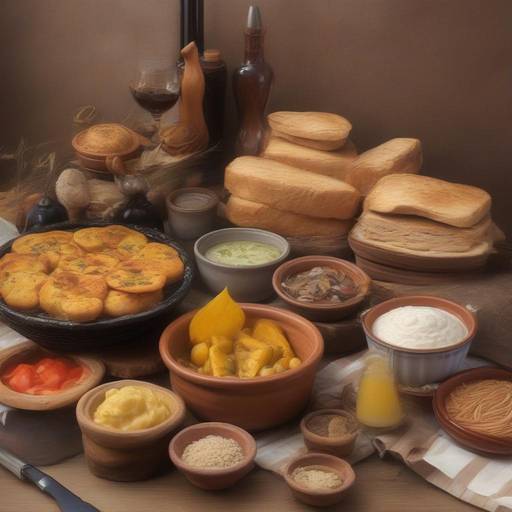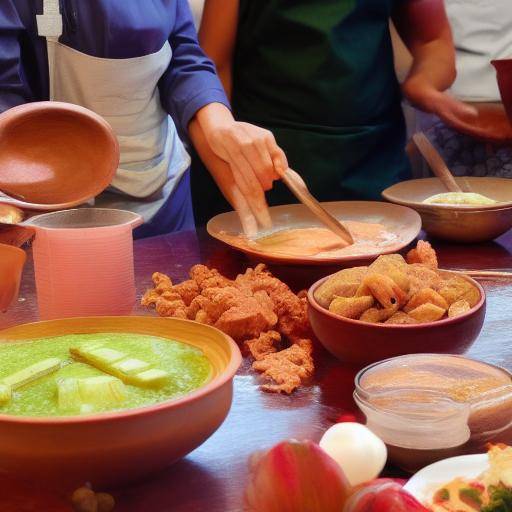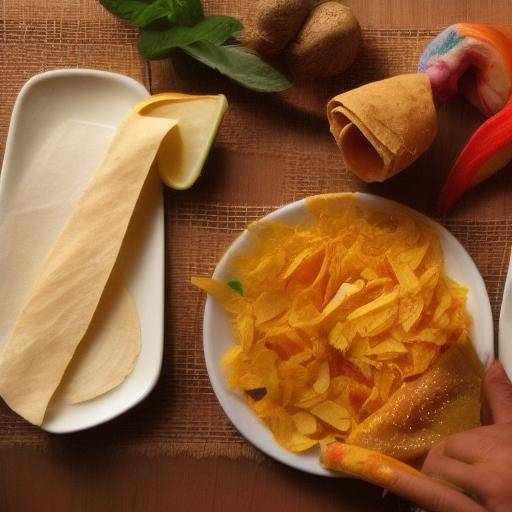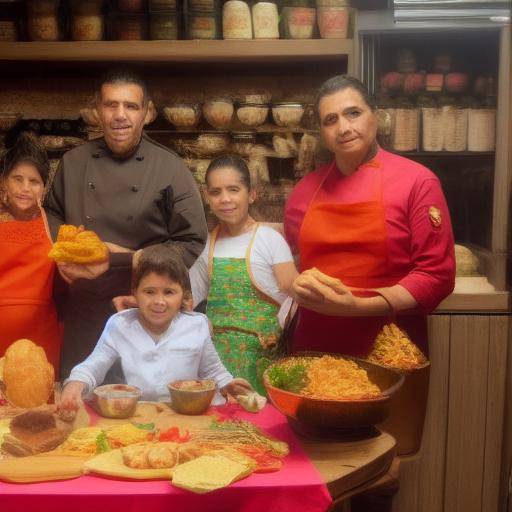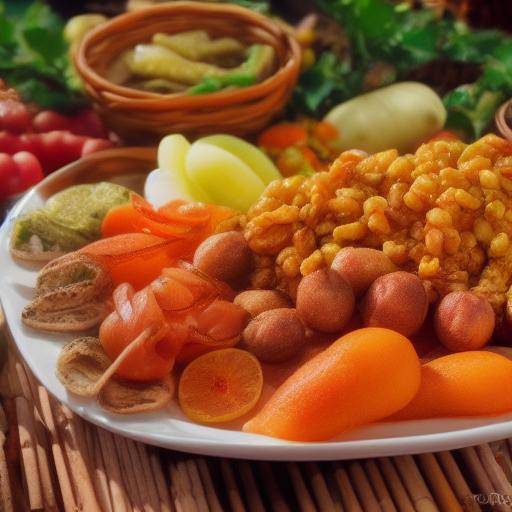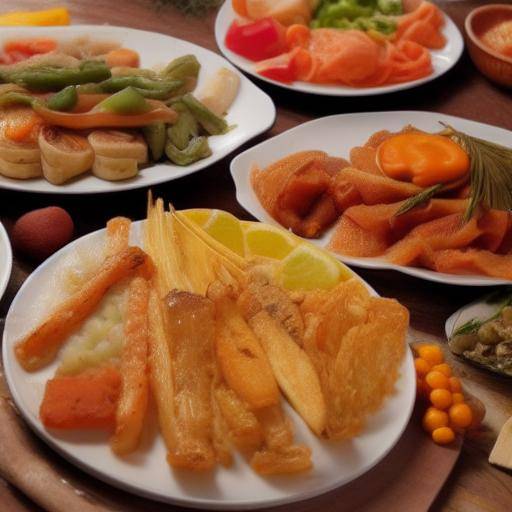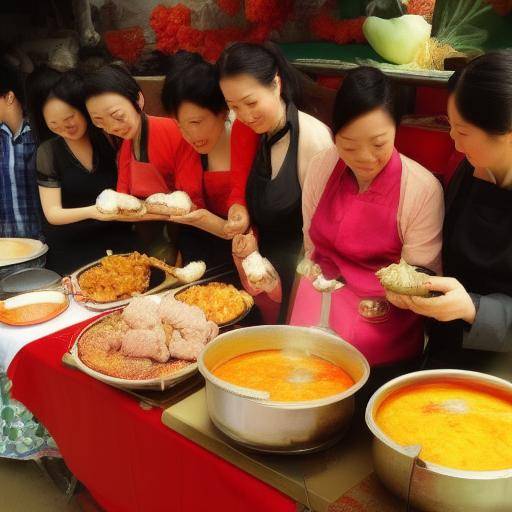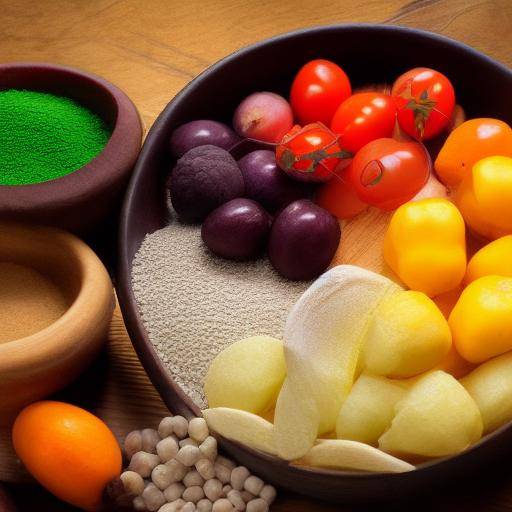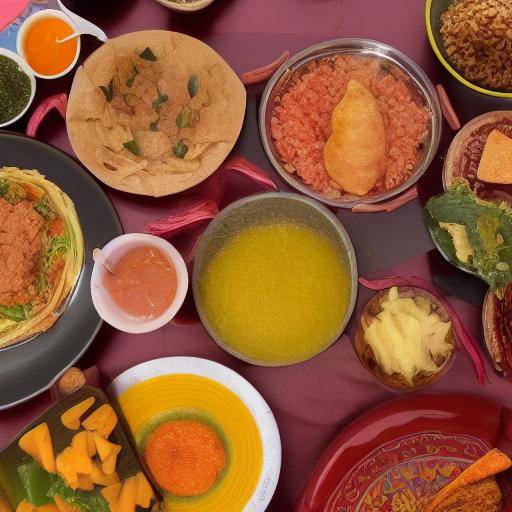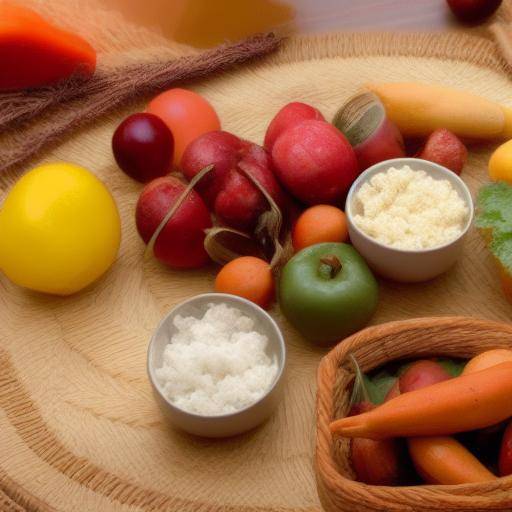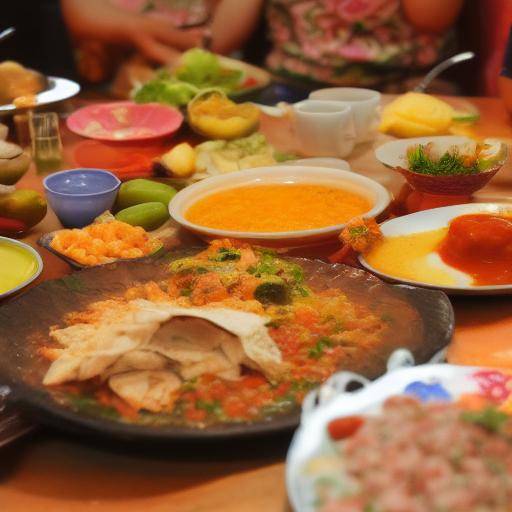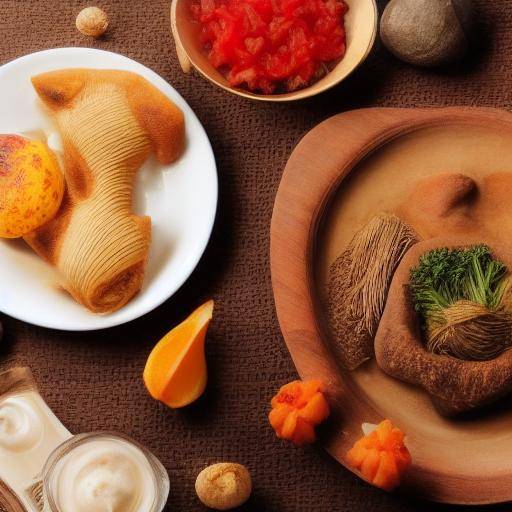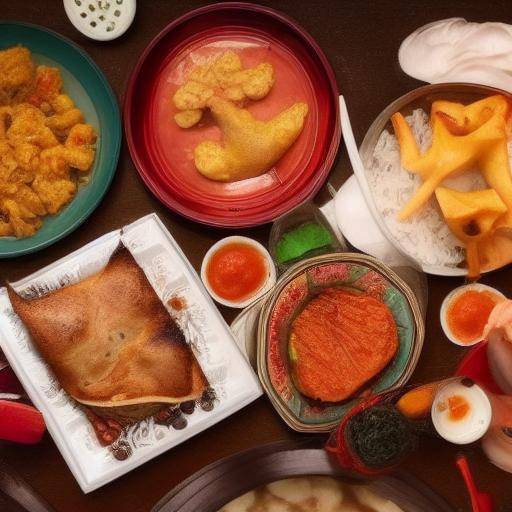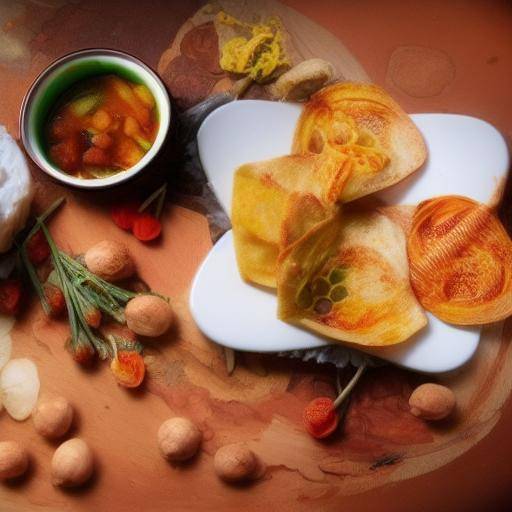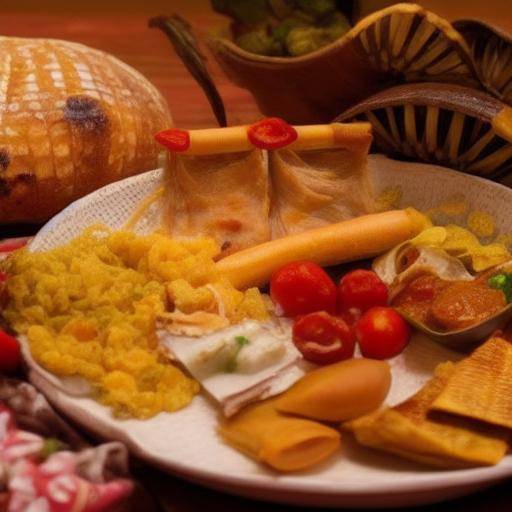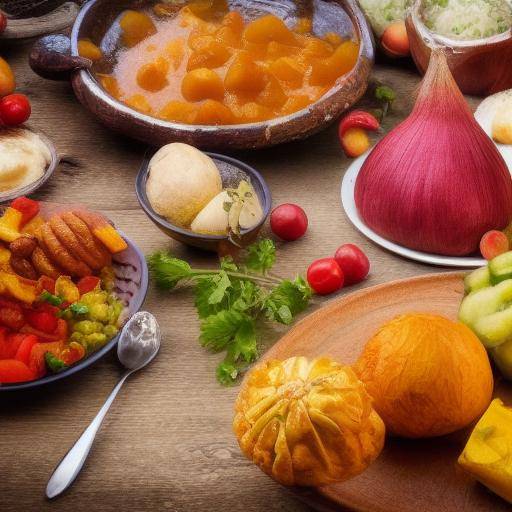
Arab culture is distinguished by its rich culinary tradition, which has been transmitted over generations with an unshakable passion for food. From sweet delicacies to spicy flavors, Arabic cuisine is a treasure of diversity and flavor. In this article, we will explore the culinary traditions rooted in Arab culture, iconic food and culinary practices that have transcended borders and continents.
Introduction
In Arab culture, sharing a meal is much more than just feeding; it is an act of generosity, hospitality and love. Culinary traditions are the soul of Arab culture, and each dish tells a story that goes back to centuries of culinary legacy. Throughout this article, we will explore the depths of culinary traditions in Arab culture, from their intriguing history to the current practices that continue to enrich palates around the world.
History and Background
Arabic cuisine has its roots in antiquity, influenced by the exchange of cultures, trade and conquests. From the inclusion of exotic spices to the adoption of innovative cooking techniques, Arab cuisine has evolved over the centuries. Their story is full of significant events that have left an indelible mark in the way food is prepared and enjoyed in the region.
The cultural exchange among different civilizations enriched the Arabic cuisine with ingredients, cooking techniques and unique flavors. The introduction of sugar cane, eggplant, rice, and spices such as cinnamon, nutmeg and cumin, transformed the Arabic cuisine into a symphony of exquisite and complex flavors.
The Quran, the sacred book of Islam, has also left its mark in the Arabic cuisine, encouraging practices such as generosity with food, moderation and prohibition of alcohol and pork. These religious guidelines have shaped the eating habits and culinary customs of Arab culture.
Deep analysis
Arabic cuisine not only delights the senses, it also offers a lot of health benefits. Its dishes often include fresh ingredients, aromatic herbs and olive oil, which are key components of the Mediterranean diet, known for its benefits for cardiovascular health and overall well-being.
However, as in any culinary tradition, there are challenges to preserving the authenticity of Arab cuisine in a constantly evolving modern world. Globalization has led to a greater influence of fast food and the industrialization of food, which poses a threat to traditional culinary practices. In the midst of these pressures, the Arab community strives to keep its rich culinary heritage alive.
Comprehensive review
The aroma of the common flavours of Arabic cuisine transports us to a world of traditions rooted in history and cultural significance. From the Moroccan couscous to the Lebanese hummus, these dishes not only nourish the body, but also connect people with their shared heritage. Authenticity and creativity in Arabic cuisine continue to inspire chefs and food lovers around the world.
Comparative analysis
Culinary traditions in Arab culture share wonderful similarities and distinctive differences with other cuisines in the world. The passion for freshness of ingredients, the meticulous preparation of spices and the importance of hospitality around food are universal elements that link culinary cultures globally.
Practical Tips and Accessible Tips
If you want to experience the authentic Arabic cuisine in your own kitchen, here are some practical tips to start: - Use high quality olive oil to enhance the flavors.
- Explore local markets to find authentic spices.
- Learn to prepare iconic dishes such as tabbouleh and baklava following traditional recipes.
Industry Perspectives and Expert Reviews
Culinary experts believe that Arab cuisine is experiencing a global rebirth, as more and more chefs and food lovers are dedicated to discovering and appreciating its rich tradition. This trend points to a promising future for the spread of Arab culinary traditions around the world.
Case Studies and Applications in Real Life
Arab restaurants abroad are living proofs of the lasting impact of culinary traditions on Arab culture. These establishments not only serve delicious dishes, but also act as ambassadors of culture, promoting the understanding and appreciation of Arab culinary customs beyond their borders.
Future Trends and Predictions
As the interest in authentic gastronomy continues to grow, it is expected that the spread of Arabic cuisine will experience a significant increase. Innovation in the presentation of dishes, the fusion of flavors with contemporary influences and the continued preservation of traditional techniques will lead to an exciting future for Arab cuisine in the global culinary scene.
Conclusions
Arab culture is a rich source of culinary traditions that captivate the senses and the soul. From its historical roots to its modern influence, Arab cuisine will continue to delight and surprise those who are lucky to enjoy it. In exploring and appreciating these culinary traditions, the rich cultural heritage that has enriched the world through the art of food is honored.
Frequently asked questions
What are some essential ingredients in the Arabic cuisine?
The Arabic cuisine is characterized by the use of ingredients such as olive oil, za'atar, tahini, nuts, and dried fruits, which provide a wealth of flavors and textures to the dishes.
How can I prepare an authentic Arabic tea?
Arabic tea is prepared with strong black tea and served with grass and sugar, providing a refreshing and aromatic flavor.
What is the importance of sharing a meal in Arab culture?
Sharing a meal in Arab culture is a symbol of hospitality, generosity and community. Inviting people to share a dish is an expression of love and mutual respect.
What are some typical Arabic cuisine sweets?
Baklava, basbousa, and knafeh are iconic desserts of the Arabic cuisine, known for its meticulous elaboration and exquisite flavor.
What challenges do Arab cuisine face today?
Arab cuisine faces the challenge of preserving its culinary traditions in a world dominated by industrialization and homogenization of food.
How can I learn to prepare authentic Arab dishes?
Explore authentic recipes, attend specialized cooking classes, and immerse yourself in Arab culture to truly understand the essence of your cuisine.
With this detailed guide on culinary traditions in Arab culture, we hope to have given you an enriching vision of one of the most fascinating and authentic cuisines in the world. Appreciating and participating in these culinary traditions is opening a window to a world of transcendental flavors and profound meaning.

